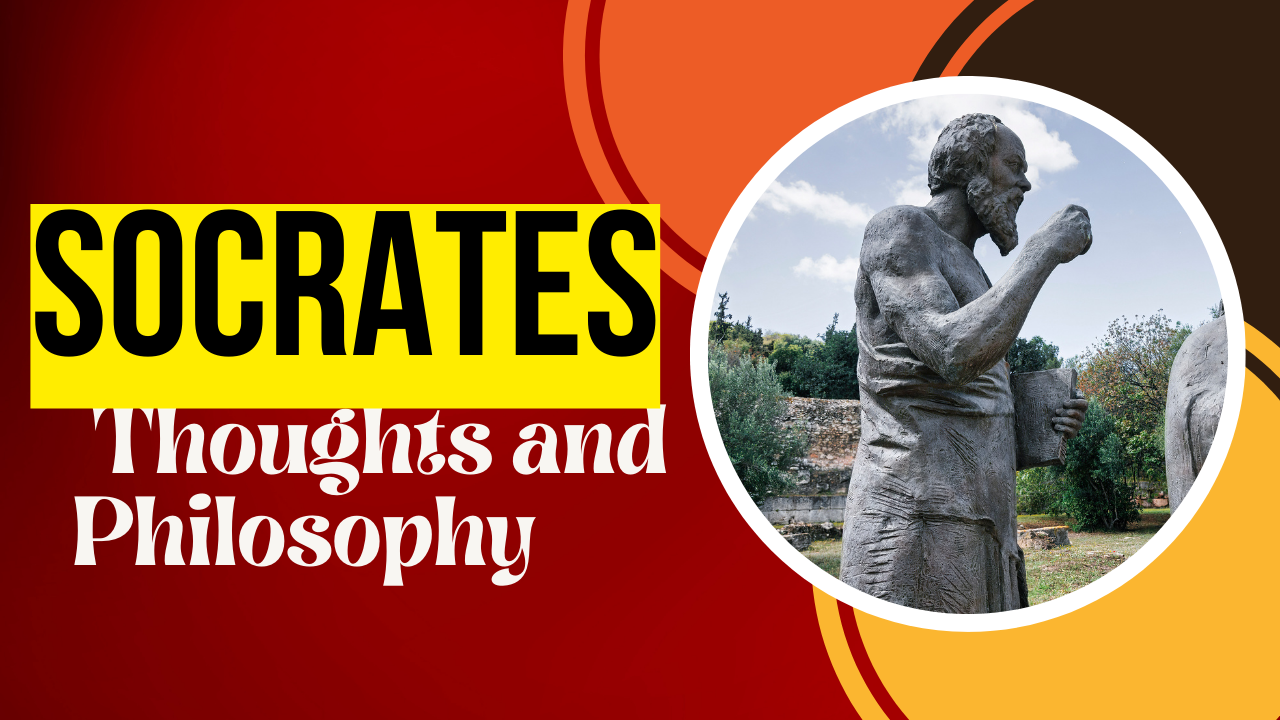Socrates was well-acquainted with Athens’ intellectual and cultural life, but remained unimpressed. He lacked interest in previous philosophical ideas, doubted the wisdom of poets, questioned Homeric theology, and bemoaned the absence of virtue in public and private life.
1. Socrates and the Sophists
He held a low opinion of Sophists and politicians, accusing them of prioritizing aesthetics over citizen welfare. The Sophists charged for teaching rhetoric, oratory, and logic, which drew criticism in Athenian society; where paying for education was frowned upon. Even today, “mere sophistry” is a derogatory term for shallow arguments. Socrates, while critical of the Sophists, engaged in debates with them. Some argue he shared similarities with them, though he didn’t charge for his teachings (Lake, 2023). Socrates criticized the Sophists for giving priority to persuasive rhetoric over genuine knowledge and wisdom. This reflected his belief in the intrinsic value of genuine, substantive learning over superficial or manipulative forms of argumentation. His main focus was on seeking genuine knowledge rather than just teaching argumentation, yet he was undeniably proficient in this skill.
2. Socrates and Democracy
Socrates had a complicated perspective on democracy in Athens. He openly criticized democracy, urging listeners to follow moral experts rather than the uninformed majority (Mambrol, 2021). Socrates argued for decision-making based on genuine wisdom rather than volatile public sentiments. He warned that letting the masses govern could lead to injustice and the marginalization of intellectual and moral expertise. He proposed a governance led by philosopher-kings or individuals with profound moral insight, rather than one solely driven by popular opinion. However, Socrates’ criticisms were directed at the implementation of democracy in Athens, not the concept itself. He believed that a well-structured, educated democracy guided by knowledge and virtue could be a just and effective form of government.
3. Socratic Paradox
The Socratic Paradox, posits that genuine wisdom is found in acknowledging one’s own lack of knowledge, famously expressed as, “I recognize my intelligence, for I am aware of my ignorance.” This challenges the common assumption that knowledge and wisdom are synonymous, highlighting the importance of humility in the pursuit of comprehension. Socrates, renowned for his sharp wit, irony, and profound contemplation was proclaimed the wisest man by the Delphic Oracle who was revered by the Greeks as being the spokesperson of gods. He initially questioned this declaration and asserted that he wasn’t the wisest man alive (Lake, 2023). In order to test this assertion, he engaged in conversations with individuals he deemed knowledgeable. Regrettably, each professed wisdom but exhibited a lack of true understanding. This led Socrates to the conclusion that his wisdom did not arise from possessing a wealth of knowledge, but from recognizing his own ignorance.
4. Socratic Problem
The mysterious nature of his life and philosophical convictions presents a conundrum known as the Socratic Problem. Given that Socrates left behind no written philosophical texts, our understanding of him relies entirely on the writings of contemporaries. The works of Plato, Xenophon, Aristotle, and Aristophanes serve as the primary sources of information about this mysterious figure (Perdue, 2014). Xenophon and Plato, two of his younger disciples, provide the most prominent accounts of Socrates’ life and philosophy. The portrayal of Socrates in their writings is influenced by their own perceptions. For instance, Xenophon’s depiction presents a more direct Socrates, willing to dispense advice rather than primarily employing the Socratic method of questioning. On the other hand, Plato paints a Socrates who often expresses ideas that align closely with Plato’s own (“Socrates – Life & Philosophy,” 2009). In Plato’s earliest “Dialogues,” which historians consider the most accurate representation, Socrates rarely discloses his personal opinions. Instead, he adeptly guides his interlocutors in scrutinizing their own thoughts and motivations through Socratic dialogue.
5. Socrates and Metaphysics
Socrates’ idea related to god or the divine, diverged greatly from the prevalent polytheistic beliefs of his era, rooted in a pantheon of gods and elaborate mythologies. Instead, he adhered to the idea of a transcendent realm of Forms or Ideas, a philosophy inherited from his predecessors Parmenides and Pythagoras. Within this framework, Socrates attributed significant importance to the Form of the Good, considering it the ultimate source of truth and the highest form of reality. Patel et al. (2022) posits that Socrates’ perception of the divine marked a departure from the conventional religious convictions of his time. His emphasis on the pursuit of wisdom, virtue, and universal truths, as well as his distinctive interpretation of the divine sign, set him apart from the prevalent polytheistic beliefs of ancient Greece. Socrates’ approach to the divine was more introspective and morally centered, reflecting his unique philosophical perspective.
6. Socrates and Epistemology
Socratic epistemology revolves around the idea that true wisdom comes from acknowledging one’s own ignorance. Socrates believed that genuine knowledge is not just the accumulation of facts, but a deep understanding of fundamental concepts and the ability to critically examine one’s own beliefs. He employed the Socratic method, a form of cooperative argumentative dialogue, to encourage individuals to question their assumptions and arrive at a deeper level of understanding (Matthews, 2009). This approach prioritizes self-reflection and open inquiry, aiming to uncover inherent truths through rigorous examination and discourse. Socratic epistemology fundamentally challenges the notion that knowledge is a mere accumulation of facts, emphasizing instead the importance of introspection and critical thinking in the pursuit of true wisdom. Socrates introduced the theory of anamnesis, which posits that all knowledge is inherently present within the soul. According to this viewpoint, the process of learning entails recollecting what individuals already know from their experiences in a previous existence within the realm of the Forms.
7. Socrates and Axiology
Prior to Socrates, ancient philosophy primarily explored topics akin to what we now associate with physics. The ‘Pre-Socratic’ philosophers were primarily concerned with fundamental inquiries about the nature of the universe, such as the composition of matter or the essence of time and motion(Centre et al., 2023).Socrates marked a significant shift in philosophical focus. He redirected attention from inquiries about the nature of the world to inquiries about how we should navigate our existence within it. While he certainly contributed to discussions on epistemology and politics, it was his emphasis on ethics that introduced a new, practical dimension to philosophy. This shift towards ethics marked a notable evolution in philosophical thought. Socrates’ ethical philosophy was centered on the pursuit of virtue and moral excellence. He believed that the highest aim of human life was to lead a virtuous and just existence. This pursuit of virtue was considered the path to eudaimonia (true happiness).


